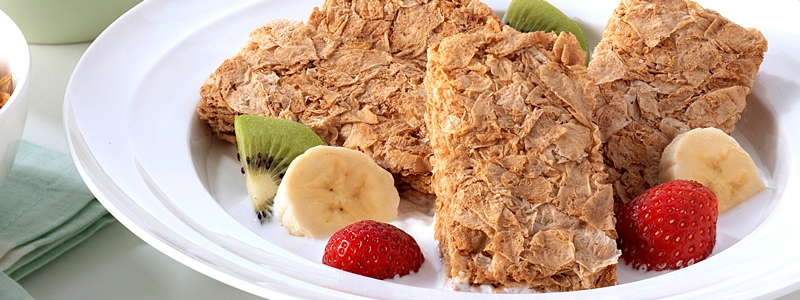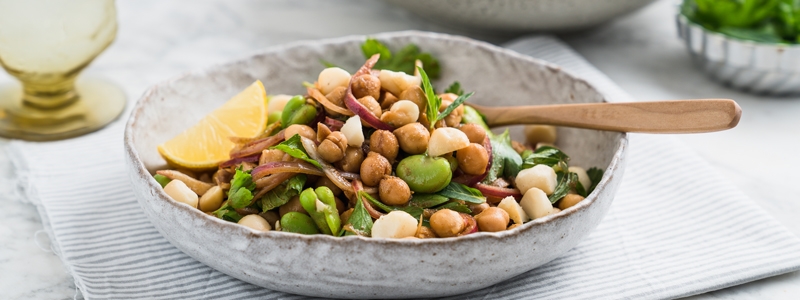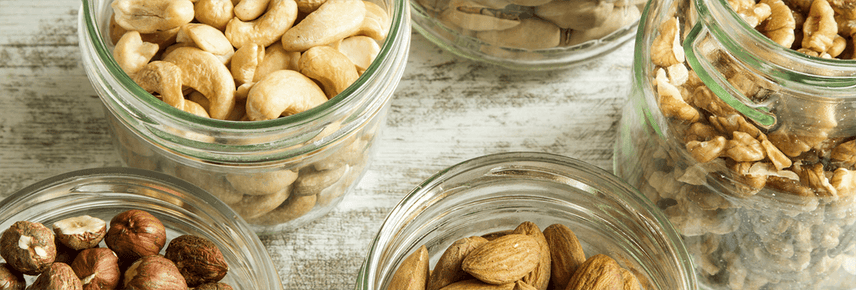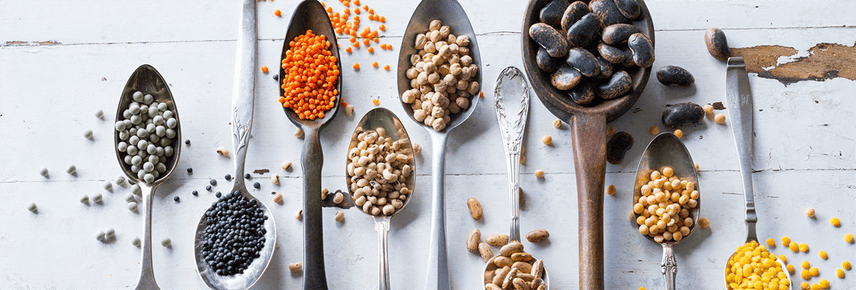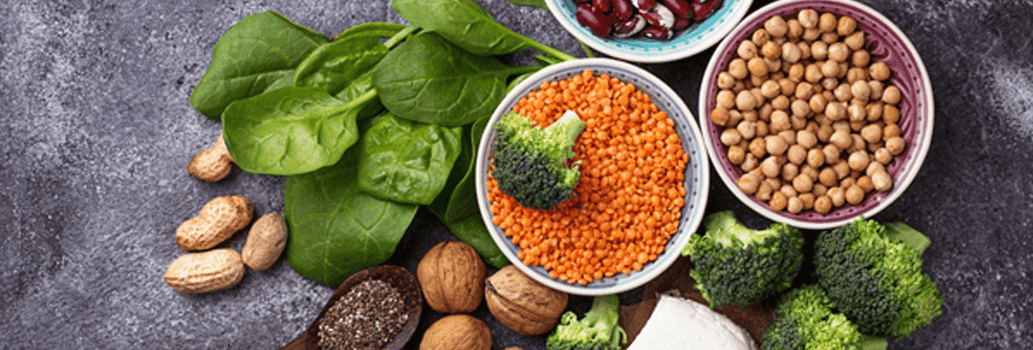
12 surprising sources of protein
No meat, no worries. When it comes to getting enough protein, there’s an abundance of plant foods that deliver a protein punch.
Protein is important for growth, tissue repair and recovery from exercise. It’s made up of smaller parts called amino acids. There are 20 amino acids that we need for good health. Our bodies can make 11 and the other nine need to come from our food – these are known as ‘essential’ amino acids.
Some foods provide a few essential amino acids, others provide them all. If you eat a wide variety of food you’ll be sure to get the protein you need. In fact, most Australians exceed their daily protein target.
Here are 12 surprising sources of protein:
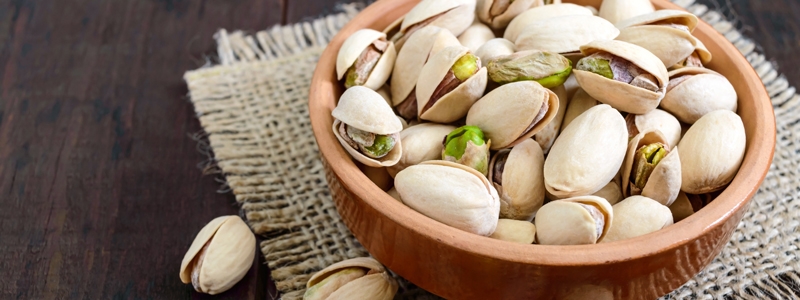
1. Pistachio: 30g handful = 6g protein.
These tasty little morsels contain all essential amino acids and can be added to so many dishes from savoury to sweet! Other nuts that will give you at least 5g protein per handful include almonds, cashews and peanuts (although technically a legume!).
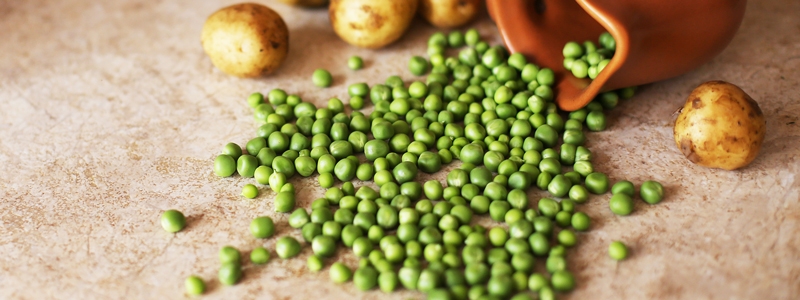
2. Peas: a cup (cooked) = 8g
Pass the peas please! Like all legumes, peas pack a protein punch with a cup of peas providing 8g of protein. These little dynamos are also big on fibre, vitamin C, iron, zinc and vitamin K. Now forget the mushy, over boiled peas your mum served you as a kid and think about the burst of sweetness from adding fresh peas to salads, pastas, frittatas or even pureed in pestos.
3. Quinoa: a cup (cooked) = 6.5g
Quinoa has been rising in popularity, possibly due to its high protein content. This ancient pseudo-grain is gluten-free and contains iron and zinc. It can be popped to create a crunchy topping, cooked into porridge, used in salads or ground into flour.
4. Cereal and milk: two wheat biscuits + 1/2 cup soy milk = 7.8g
Yep- wholegrains contain amino acids, too! Something as quick and easy as two wholegrain breakfast biscuits provides 3.8g of protein - pair that with dairy or soy milk, top with a handful of nuts or seeds and your protein game at brekkie is looking good!
5. Soy: 150g firm tofu = 18g
Soy knocks it out of the park when it comes to protein. It contains all nine essential amino acids and you’ll gain the benefits no matter whether you eat edamame beans (immature soy) in their pod or in the foods soy beans are used to make such as tofu, tempeh, and many meat alternatives. A snack size can of edamame beans provides 7.1g protein and is a fab protein boster for any dish.
6. Milk (Soy or Cow): a cup of soy milk = 8g
If you are looking for an excuse for your morning latte here it is! Milk and fortified soy milks really are a glass of goodness, providing all the essential amino acids, as well as B group vitamins, calcium, phosphorus and potassium. If you prefer milk alternatives, there’s no need to miss out on the protein, with soy milk providing as much protein per cup, plus other nutrients.
7. Lentils: 1 cup brown lentils (canned) = 16.7g
Whether green, brown or red, lentils are so easy to add into dishes as a meat substitute. Try adding canned lentils to your bolognaise sauce to replace some or even all of the beef mince. Not to mention, lentils are low in saturated fat and high in fibre- and, like all lovely legumes, can contribute to your daily veg intake!
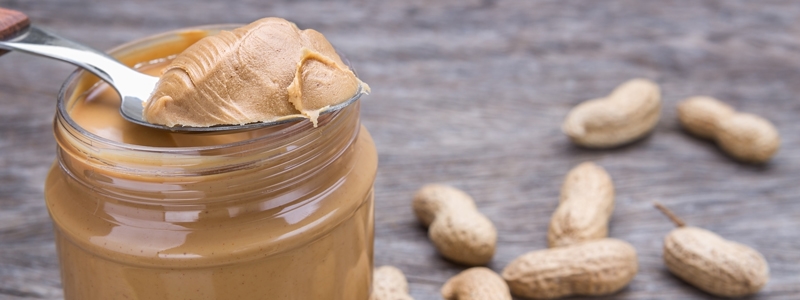
8. Peanut butter: 1 tablespoon = 5.9g
Whether snacking on apple slices with peanut butter, or spreading it on your morning toast, this favourite spread stacks up, providing essential amino acids, vitamin E and magnesium. In fact all nut butters contain protein, so if you’re not a peanut fan try almond butter or the popular ABC spread which contains a nutritious mix of almonds, Brazil nuts and cashews.
9. Broad beans: 170g (1 cup) serve = 12.5g
This ancient bean was one of the first farmed crops. In fact evidence of broad beans were even found by archaeologists among excavations of ancient Troy. Known as the king of beans, broad beans are full of nutrients with a 170g serve providing 12.5g protein as well as fibre, folate, vitamin C, iron, riboflavin, niacin and thiamine.
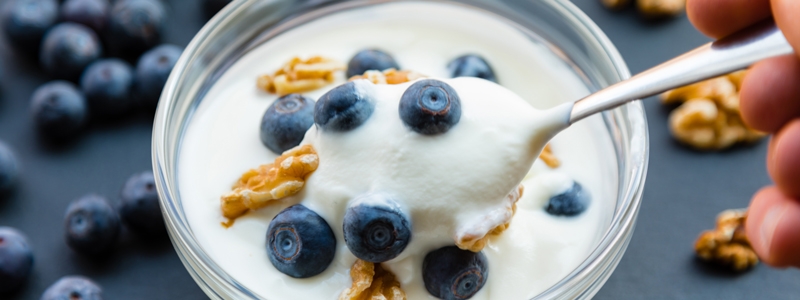
10. Yoghurt: two thirds of a cup of low fat yoghurt = 11.4g
Yoghurt is a great addition to cereals, smoothies and snacks for a protein boost. The amount of protein will vary from product to product, with natural and Greek-style yoghurts generally containing the most protein, some as high as 16g a serve. Choose plain or natural varieties if you are after less sugar and serve with some fruit and nuts for an additional nutrient boost.
11. Chia seeds: 3 tablespoons = 5.6g
These tiny seeds have a long list of nutrition credentials including an unusually high amount of omega-3 – an essential fatty acid for brain function and heart health – plus plenty of calcium and loads of fibre. They are also incredibly versatile, which is why you are now seeing them added to so many recipes and supermarket products. Try chia sprinkled on salads or cereal, added to bliss balls or smoothies, or even soaked overnight ready to start the day with a chia pudding. Now that’s a super food!
12. Chickpeas: 1 cup (cooked) = 11.8g
Chickpeas are budget-friendly nutrition at its best. They are cheap to buy low GI and a good source of iron, folate and magnesium. They are also an excellent way to add amino acids to your diet. Mix them with tahini (sesame paste) to make a hummus and you’ll tick the box for a nutritious and versatile spread – a reason to eat more hummus, yes please!
Subscribe to Wholicious Living to stay up-to-date with the latest health and nutrition advice.
So how much protein do you need? It is recommended that men up to age 70 eat around 64g of protein per day to stay healthy, and women up to age 70 eat around 46g (unless pregnant or breastfeeding). Find out more...
Dietitian, Angela Saunders, answers most commonly asked questions about plant proteins and why they're essential for our health. Watch the video below and subscribe to our Wholicious Living newsletter to stay up to date with the latest health and nutrition content.

The latest nutrition advice, plus health and wellness tips delivered to your inbox monthly
